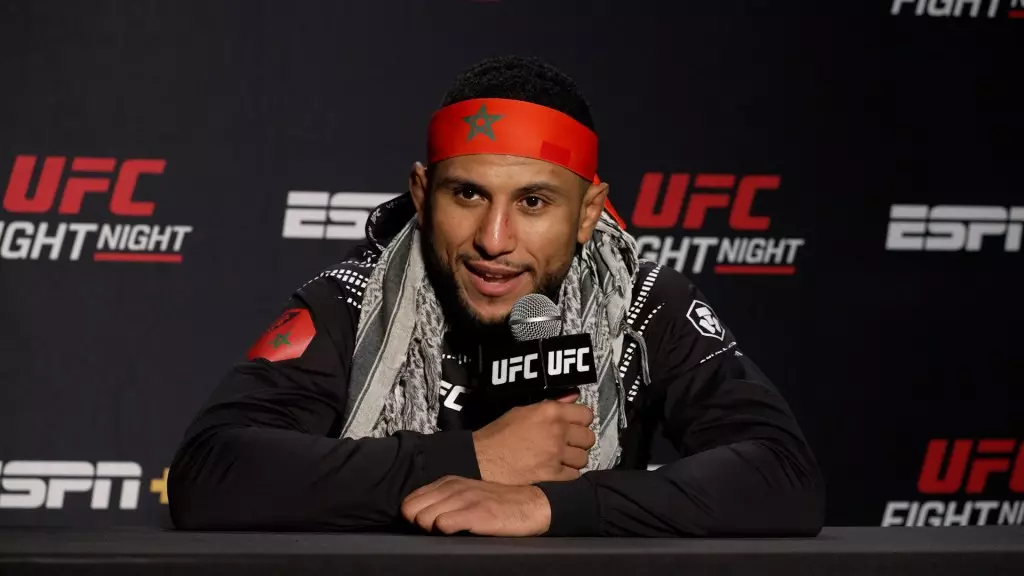The world of mixed martial arts is often a stage for raw talent, unwavering determination, and sometimes intense rivalry. Recently, a notable spotlight was shed on the UFC Fight Night 251 event, where Youssef Zalal faced off against Calvin Kattar. Despite Zalal securing a unanimous decision victory, his post-fight remarks stirred discussions that transcended the boundaries of sport, hinting at potential foul play.
Zalal, now boasting a record of 17 wins, 5 losses, and 1 draw, showcased remarkable skill throughout the fight against Kattar, whose record stands at 23 wins and 9 losses. The co-main event unfolded with Zalal taking command early on. He delivered an impressive performance during the first two rounds, demonstrating effective striking and defensive tactics. However, Kattar clawed back in the third round, which potentially hinted at a more competitive match than the initial two rounds suggested.
Yet, it wasn’t the technical prowess that captured headlines. Instead, it was Zalal’s bold assertion that Kattar was “greased up,” lending a shadow of doubt to the fairness of their contest. His claims introduced an element of skepticism into the sport, as athletes often put their entire beings on the line in a fight. Allegations of violation disrupt this sanctity, demanding accountability.
In the aftermath, Zalal expressed incredulity over Kattar’s slippery demeanor, likening him to someone covered in Vaseline, which would obviously provide an unfair advantage during grappling exchanges. “Nobody slides like that,” he declared, underscoring his frustration with what he perceived as a breach of sporting integrity.
This accusation is further complicated by the reality that the integrity of the sport must remain paramount. In professional MMA, the consequences of such alleged unethical practices can reverberate beyond a single fight, prompting governing bodies to instigate investigations or revisit regulations concerning fighter conduct and oversight. Zalal’s remarks could spark a broader conversation about equipment and preparation protocols, urging organizations like the UFC to ensure fighters maintain an equal playing field.
Despite the controversy, Zalal remains focused on his own trajectory within the UFC featherweight division. “I’m doing me, and it’s going to get me to the top,” he asserted with palpable resolve. His commitment to pushing forward amidst allegations underscores a fighter mentality that prioritizes personal growth and achievement over lingering grievances.
Nevertheless, the undercurrent of his accusations raises lingering questions. As MMA continues to evolve, so must its framework for handling such disputes. While Zalal looks ahead to competing against bigger names, one must wonder how these allegations will cast shadows on future matchups and whether they will eventually necessitate clearer policies regarding fighter interaction and the maintenance of competitive integrity.
The situation surrounding UFC Fight Night 251 serves as a reminder of the complexities that envelop competitive sports. To maintain the integrity and fairness essential for both athletes and fans, a vigilant approach to ensuring clean competitions must be a priority as the sport moves forward.

